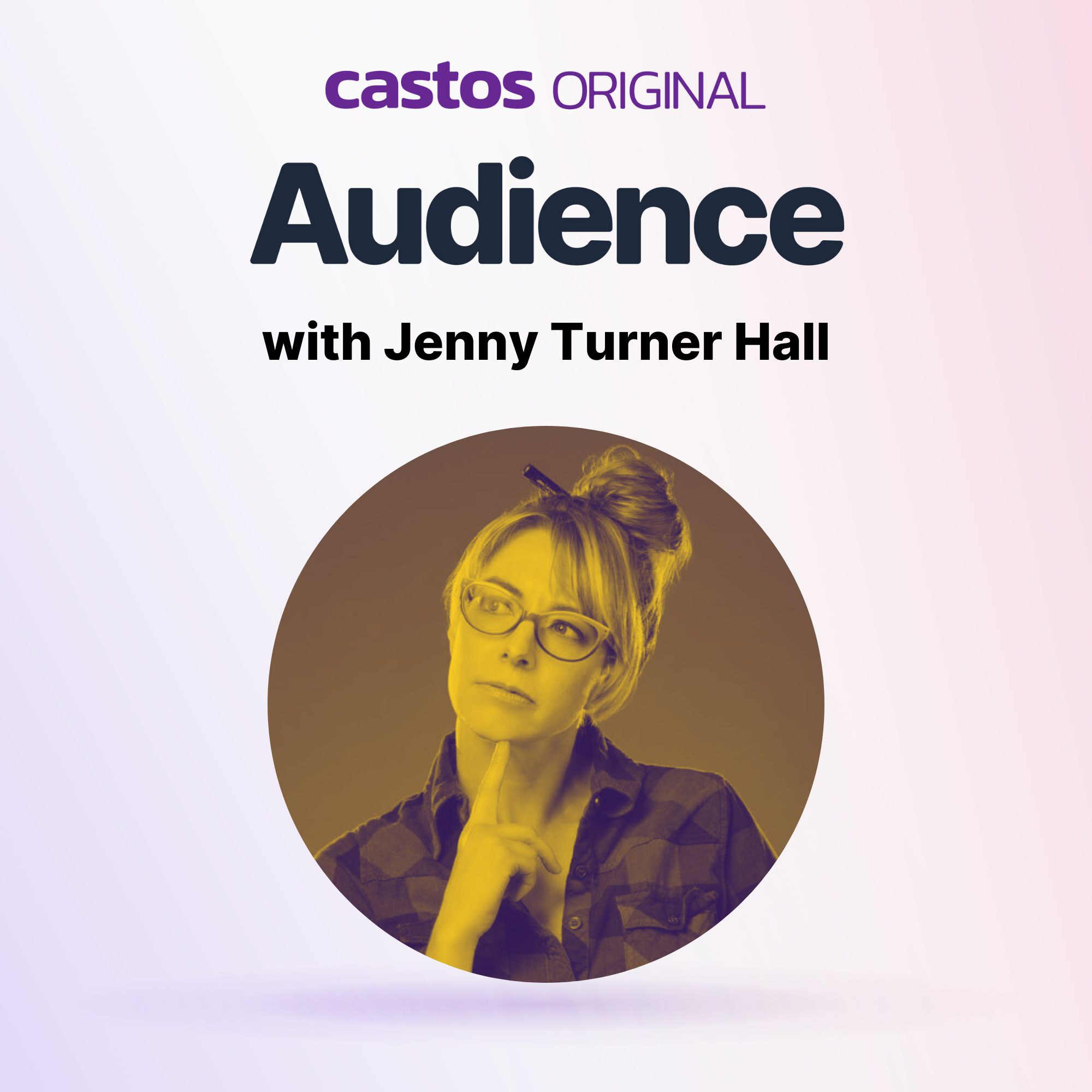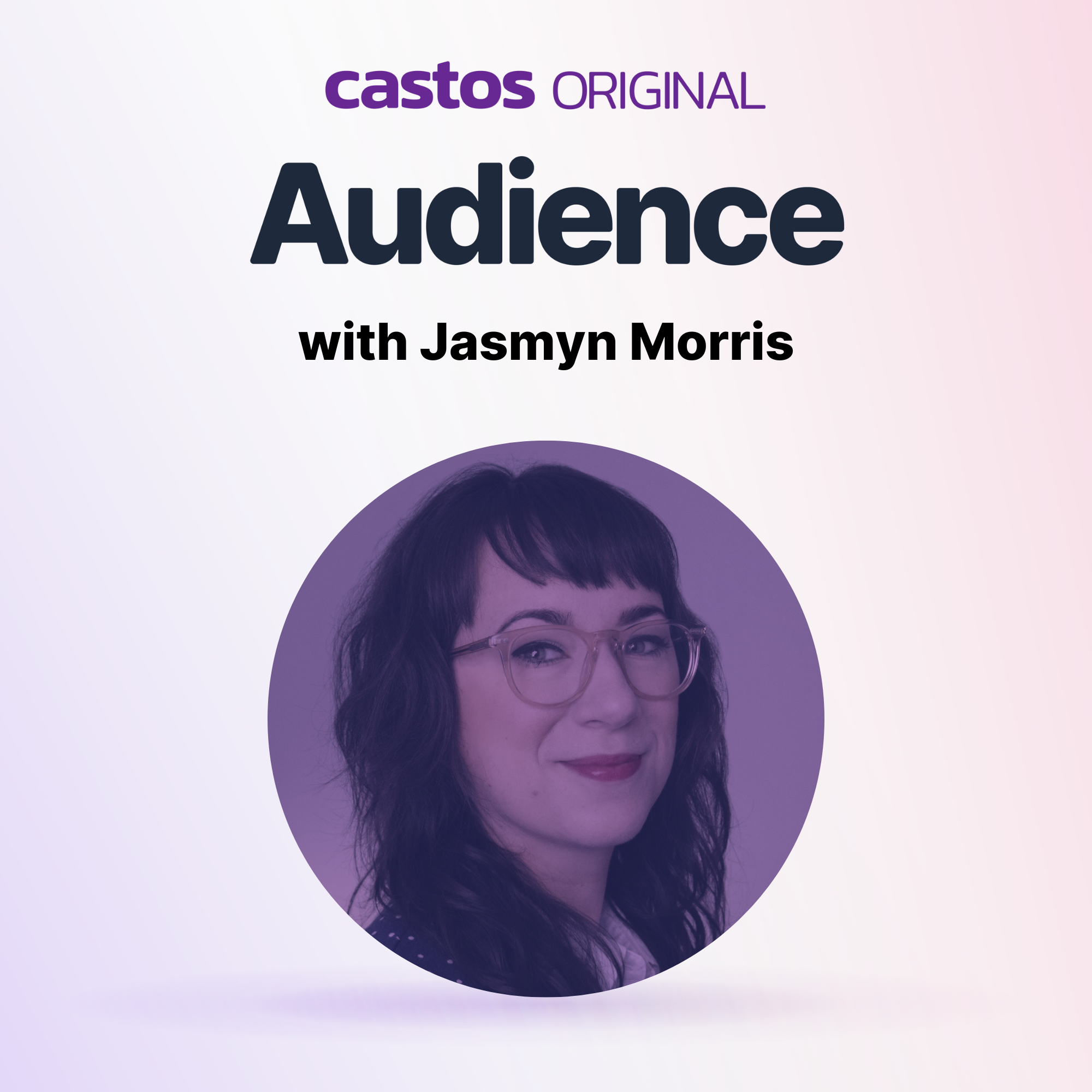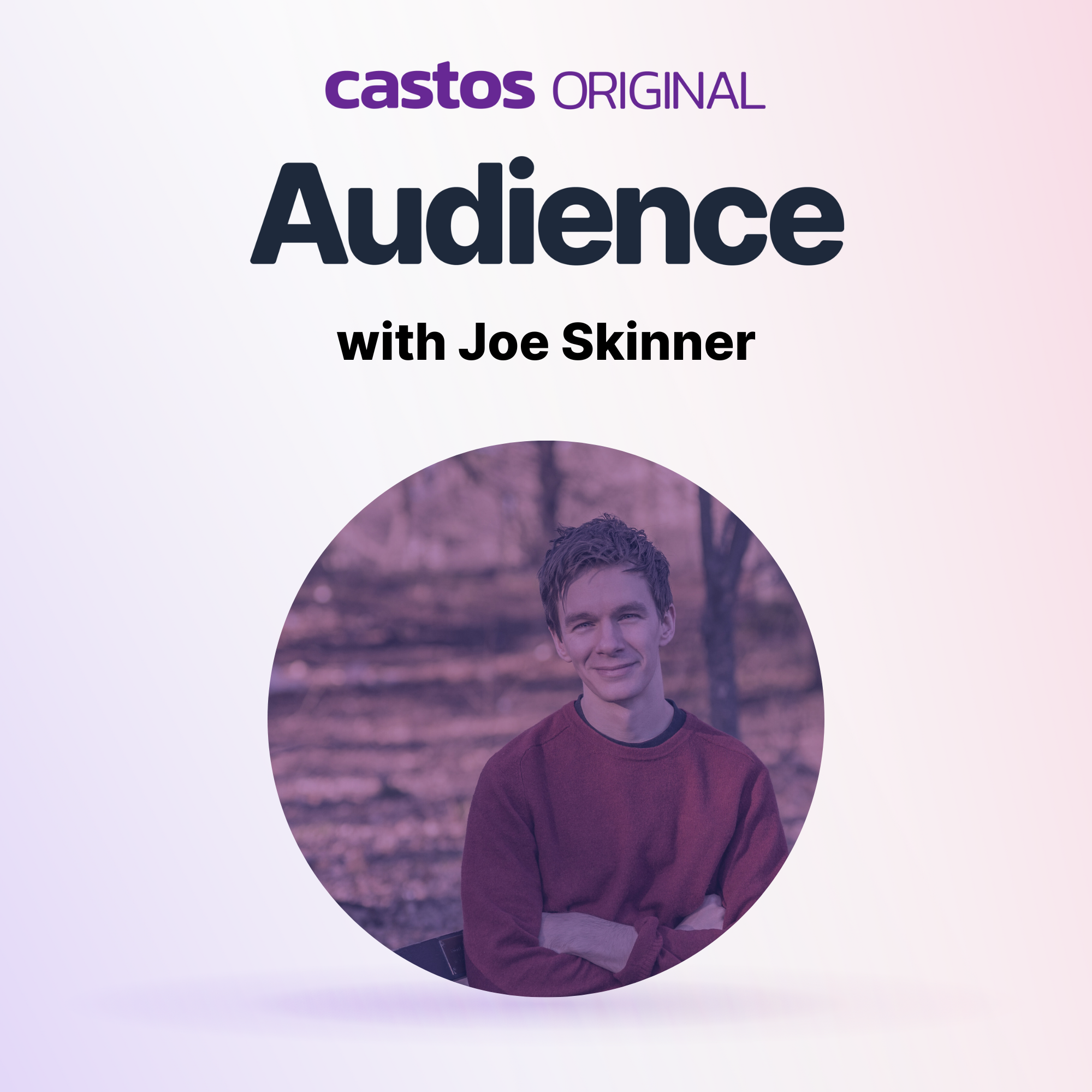Speaker 0 00:00:00 Hey, Stewart here. I just wanna touch base and let you guys know that next week's episode will be the final episode of season two. After that, I'm gonna take some time off during the summer, but I'll be producing new episodes sometime in September. With that of mind, I just wanna thank everybody who's been tuning in this season. Audience is a show that has evolved over time, and it's quite different from when it first started. So for those of you that have stuck around during this transition, I really appreciate it. I also appreciate the support from the team at Casto who have allowed me to redesign this show. The whole idea is to inspire more creativity in your work, and I sincerely hope we're accomplishing that goal. So if you have questions, ideas, or feedback, feel free to reach out to me
[email protected]. In the meantime, stay tuned at this feed cause we'll be running re heirs, not just from audience, but from our other Casto originals. We'll also be giving updates about some virtual events and other programs we've got coming up.
Speaker 0 00:01:04 So about next week's episode, I'm gonna speak with Jasmine Morris from the podcast Hitman. We chat about the importance of journalistic ethics and podcasting, especially as it relates to the true crime genre. I think it's a very important topic to cover, and frankly, what I've been trying to do for a while, I'd highly recommend listening to as much of the Hitman series as you can between now and next week. It's a fascinating story, and Jasmine's reporting is nuanced, professional, and compassionate. Here's a bit of what you can expect from our conversation, is that when you discovered the existence of Rex Ferrell and the book Hitman?
Speaker 1 00:01:46 No. So I'd read about that previously, that story, you know, all that had been told about that. Part of the story was that Rex Ferrell was a pseudonym, and that, you know, it's been said or alluded to, that it was a woman who wrote this book. That's all that was out there. No one had ever told that story. And so that took so much more digging and none of that was in these criminal cases. So there were so many cases involved here. There's the, the settlement with Children's Hospital when, um, you know, when Trevor's ha when the accident happened there, which is what tr Lawrence Horn hired hitman to kill his family for, it was that settlement money. Then there was the two criminal cases, the James Perry case and the Lawrence Horn case. And then there was this, you know, civil case. I, I mean there's so many ca there's so many cases. The Rex Ferrell First Amendment suit came years after the murders. So that was a whole other box of files. <laugh>.
Speaker 0 00:02:47 It's not like this is like curated information when you're going through case files. It's not like there's a table of contents or it's not like searching online where you can do a, a search. I mean, I can't, I can't even imagine.
Speaker 1 00:02:59 Yeah, and when you go there, you know, that's everything. And you're only allowed as a journalist to use the stuff that was used in the ca in the trial. So anything that had an exhibit sticker on it, I could use, but everything else was there. So I had to, you know, it was, it was, they were also trusting me to do my job and not take some of the stuff that was not used as evidence. And, you know, one of the things that was also just so frustrating was when I got there, I was looking for, so if you listen to this podcast, you know that this, one of the smoking guns of this criminal case in the murder trial was the fact that James Perry called Lawrence Horn, and it was recorded on his answering machine on Lawrence horn's answering machine. James Perry called and basically said he'd done the job. And there was a recording of that, and that recording was missing in all of these documents. There was a transcript of it in a folder where that recording should have been and it was nor to be found. And they, they don't know what happened to it. Maybe a previous documentary crew took it, they don't know. But that was not there. So that was kind of baffling <laugh>. But, you know, it's a 25, it was 25 year old case. These things happen. The fact that the files still existed is, is great.
Speaker 0 00:04:22 So that's coming up next week for this week. We've compiled our podcasting tips from this season and put them all here together for you. Hopefully you'll find it inspiring and helpful.
Speaker 3 00:04:35 My name is Tamara Aviche. I am the creator and host of The Lonely Palette. And my podcasting tip is if you have scripted something, read it out loud to yourself, read it out loud. You think you're gonna walk right into the booth and you're gonna be able to just read it for the first time, but it's not gonna read the same way. You have to hear how it sounds through your voice, not just through your eyes and your fingertips. So read it out loud, shorten your sentences, be ready to, you know, cut and paste and delete and, and toss in sentences and toss in periods. And, you know, all that stuff that, that gets underlined in green and Microsoft Word, because it's a fragment that actually is the best stuff to read out loud with your voice. And then you go into the booth and I promise you it'll be a better episode.
Speaker 4 00:05:28 This is Ben Brock Johnson from the podcast, endless Thread. And my podcasting tip is even when you're not in the field, hit record before you get the person on the phone. Because often there's a lot of fun, silly, awkward moments that happen before you officially start the podcast that you can include in the official podcast. And sometimes there's just some nice genuine moments that that happen there that, that are useful and usable in creating the storytelling that you're, that you're doing.
Speaker 5 00:06:06 Hey, my name's Emily Wwu from Ghost Island Media and my podcasting tip is experiment, experiment, experiment a lot. Um, we found great fun and success in experimenting in bits at a time. So like, if you wanted to experiment with drama, just do five minutes at a time or even one minute. And it keeps it fun. You, it keeps you, um, you can learn a lot through that one minute because frankly, you know, if you wanna start a whole episode that's just daunting and we never finish because it's too big of a task. But kind of practicing, experimenting with new formats and different ways of designing that soundscape and storytelling kind of tiny chunks at a time, it's through the experimentations. Are we able to implement those in bigger shows down the line and also have fun, have lots of fun because, uh, I think this is what podcasting should be. And if you're not having fun, um, no, you should be having fun doing it. <laugh>
Speaker 6 00:07:10 Hi, I'm Emma Barbara Lucas from the podcast Waku Co Write and my podcasting tip, which is taken from Tanner Campbell who told me this, is to just make sure that you're making something that you're proud of. I know that you might seem a little sugar sweet, but it's really true. You're putting something out there that you're proud of, you're gonna be able to keep going with it. Um, you're gonna feel like you are doing something of benefit to other people, that you're doing a service for other people. And, uh, I don't know, I thought that was a really good guiding, guiding force for putting content out into the world. So I hope it
Speaker 5 00:07:43 Helps.
Speaker 7 00:07:46 So my name is Morgan Gibbons. I am the creator of FLIs Fables. And my podcasting tip is listened to the world around you. When you are moving outside, when you are in restaurants, in grocery stores, walking down the sidewalk, pay attention to how the sound hits your ear, what direction the sound is coming from, how close you can tell the sound is the speed at which the sound is approaching. You know, when you pay attention to all those little nuances when you're just moving around in the world, it becomes much easier to recreate that reality in sound. It becomes much easier to recreate that scene, and it sounds true and real as opposed to something that was created in a studio. It won't sound canned and it's, it's about layering. So as you're moving through the world, listen to how the wind hits your ear. Listen to how the wind feels against your back, cuz that tells you what direction it should be blowing and which will tell you how you should be hearing the leaves on the trees, which means you can create these seams that you then put your characters into and that helps you write into a scene as opposed to on top of a scene.
Speaker 8 00:08:50 Hey, I'm Andy Murphy from the Toasted Sister podcast, and my podcasting tip is Leave your breath in. There we breathe air.
Speaker 9 00:09:03 I'm Will Williams, showrunner of valence, and I highly recommend getting isotope. Rx Isotope is a product that will help clean up your audio. It's the best in the biz. You just click a few buttons and your audio sounds substantially better. And, uh, I think the most important part of this tip is it goes on sale really cheap about twice a year. Keep an eye out, follow them on social media. Pick up isotope, it will save your life.
Speaker 10 00:09:31 Hey there, this is, uh, eth barley, uh, of Clem Sny, A life in song with Clem Sny. And, uh, my podcasting tip is, you know, life is not a problem, uh, to be solved, uh, but a story to be lived. And, uh, that's how I, uh, approach it.




